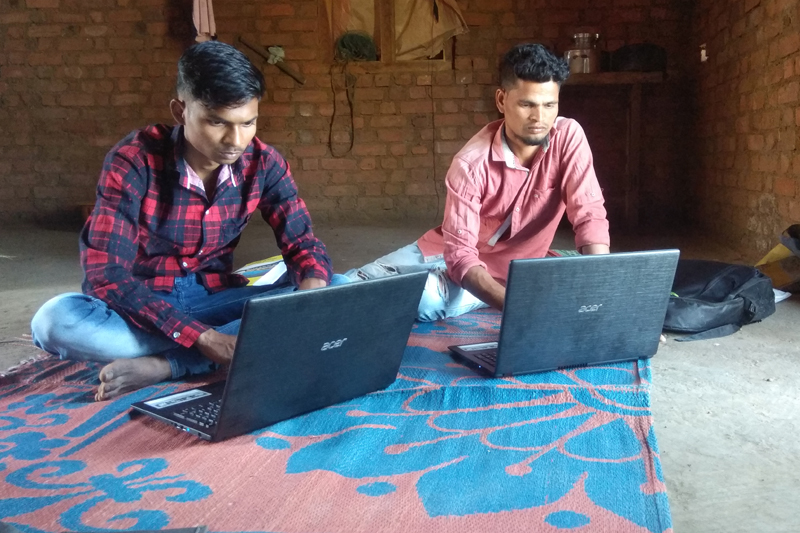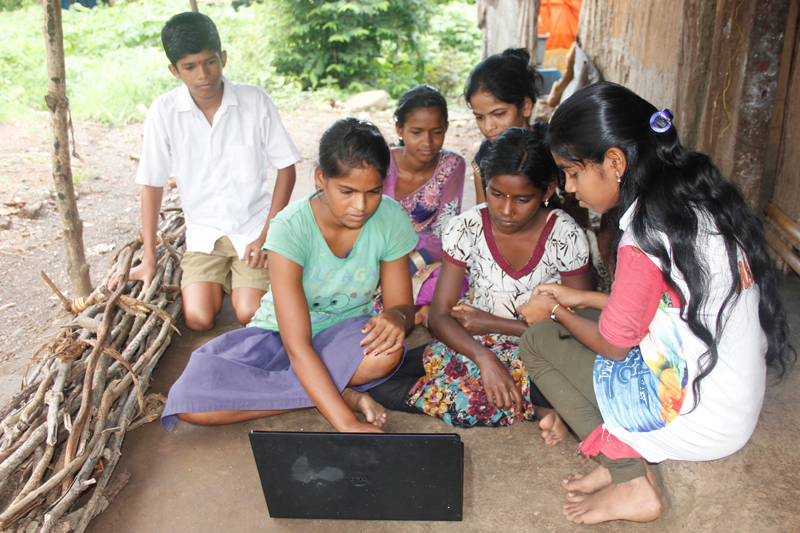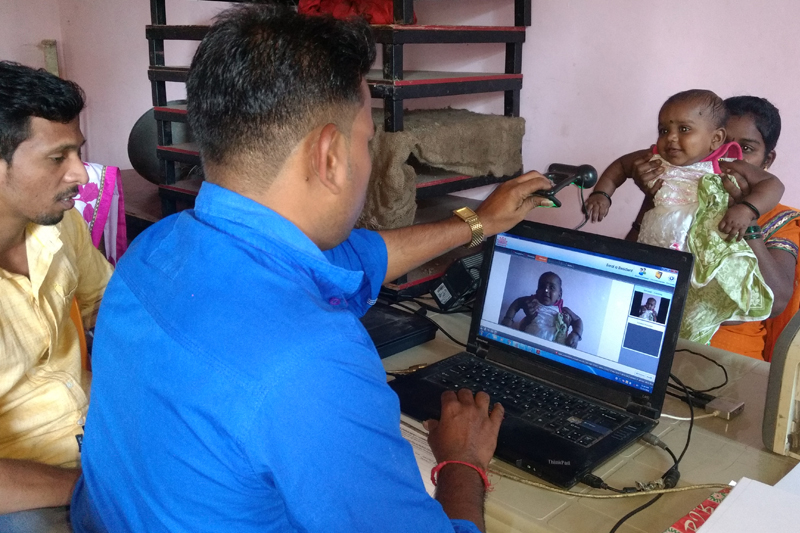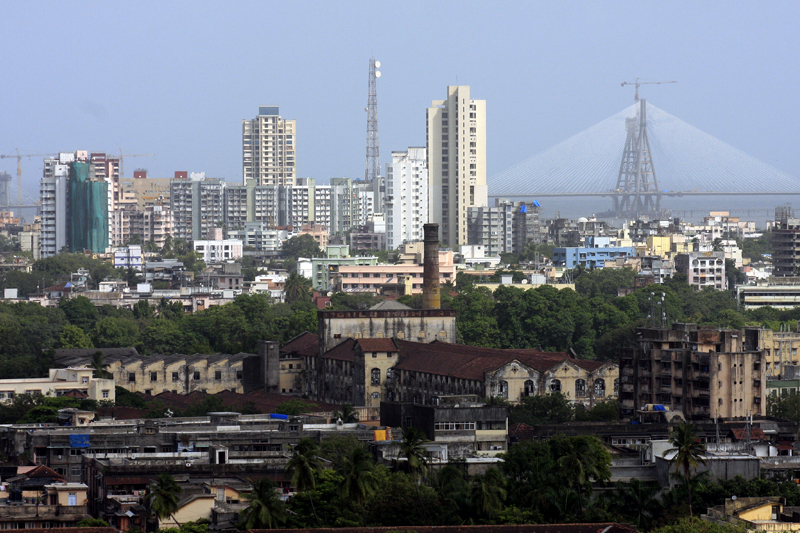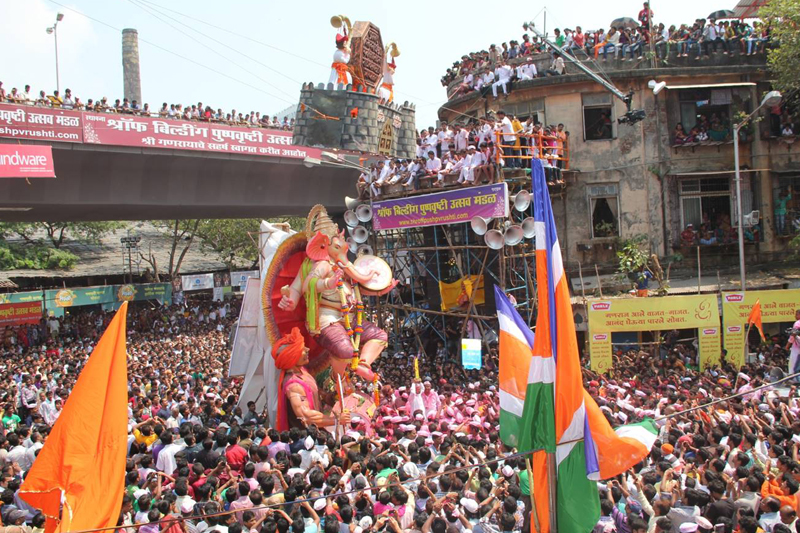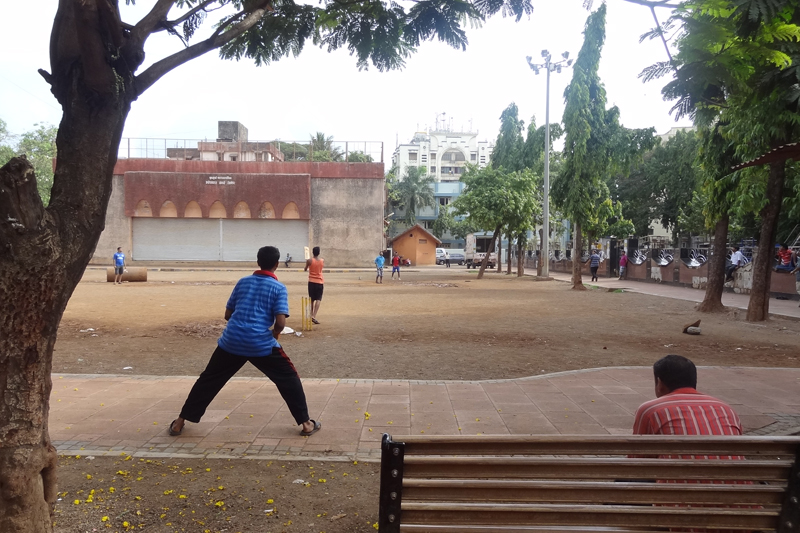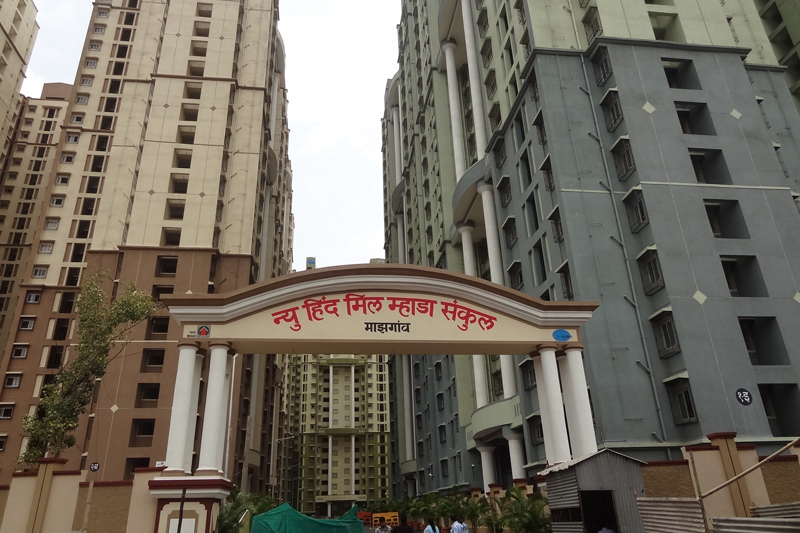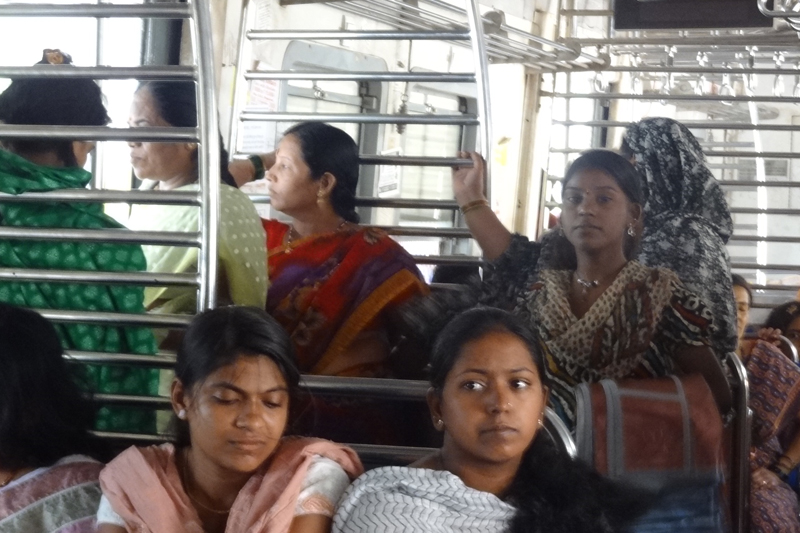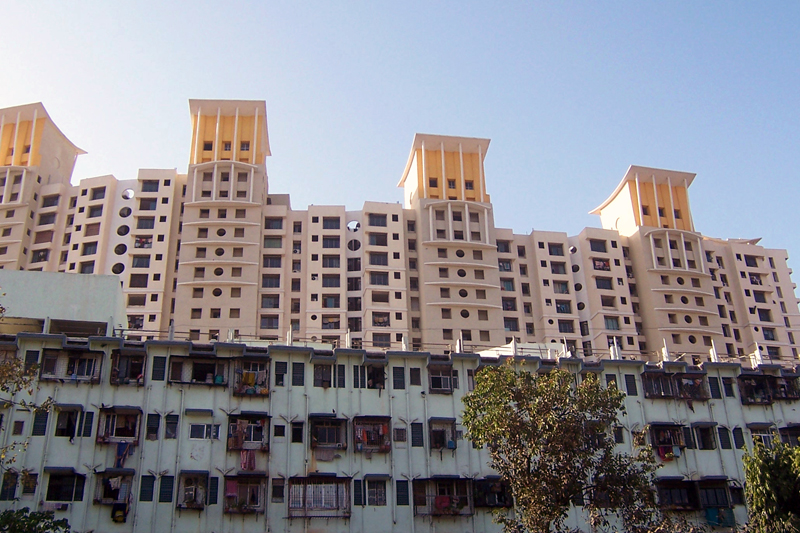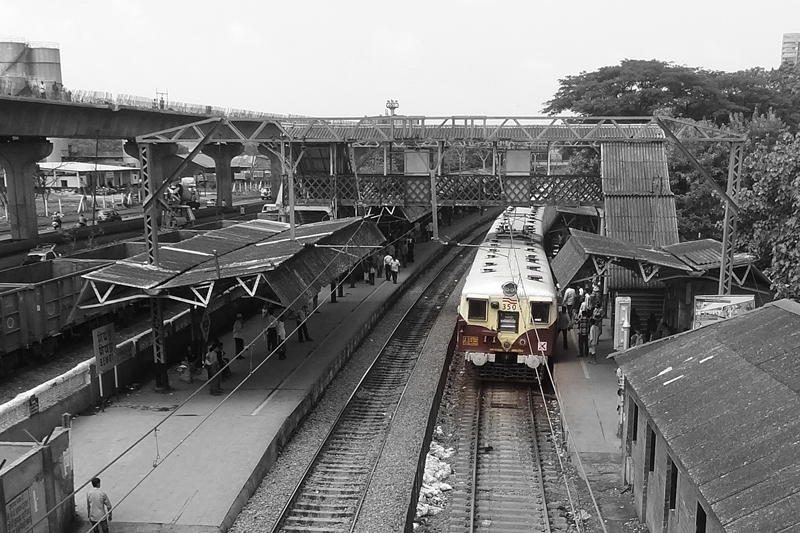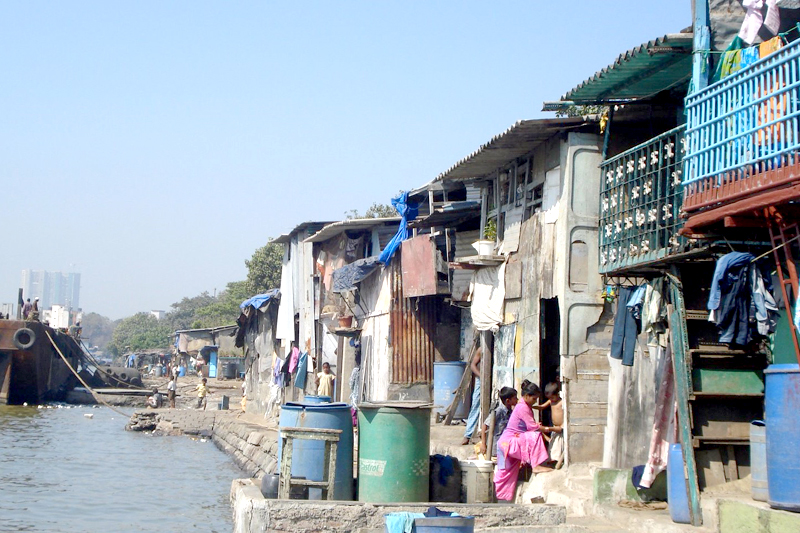Partner: Azim Premji Philanthropic Initiative Key Words: 73rd Amendment, Local Democracy, Last Mile Governance and E-Governance (Digital Literacy), Women’s leadership through SHG, livelihood Context: In the current information age, Internet, with its enabling, facilitating and wealth creating potential, it has become a powerful enabler to enhance the quality of life by brining equity in many spheres. The key barriers to digital inclusion are lack of affordable access ,…
October 2015 to September 2018 Supported by Azim Premaji Philanthropic Initiative In the current information age, Internet, with its enabling, facilitating and wealth creating potential, it has become a powerful enabler to enhance the quality of life by brining equity in many spheres. The key barriers to digital inclusion are lack of affordable access , poor quality or absent last mile infrastructure, lack of digital literacy, and lack of…
Ford Foundation Palghar was carved out of Thane district and was recently minted (August 2014) as a tribal district in state of Maharashtra that is located about 120-140 KMs north of Mumbai city along the Mumbai-Ahmedabad highway. Skirted by Gujrat on the north and northwest and Nasik and Thane on North East and Northwest, Palghar is home to landowners belonging to Agri and Kunabi ethnicity (OBC) and tribal (Adivasi)* who…
2007-2014 Partner: Ford Foundation The Mythologies of Mumbai Project explored the relationship between globalization and entrenched social and economic hierarchies through three lenses - livelihood, habitat and educational institutions. The two areas of the city chosen for this exploration were Girangaon - the erstwhile industrial centre of Mumbai and Dharavi - supposedly the largest slum neighborhood of the city, both undergoing gentrification. The researchers, residents of Dharavi and Girangaon, archived,…
2010-2013 Partner: Max Planck Institute of Religious and Ethnic Diversity The three-year Urban Aspirations in Global Cities project was a collaboration between Max Planck Institute of Religious and Ethnic Diversity, Gottingen (MPI), Tata Institute of Social Sciences (TISS) and Partners for Urban Knowledge, Action and Research (PUKAR). The mandate of the project was to bring to the table innovative ways of looking at the urban city that is generated…
Partner: BMW Guggenheim Lab Collaboration 2013-14 The BMW Guggenheim Lab collaborated with PUKAR to explore the concepts of public spaces and privacy in terms of community spaces, homes, gender, income, technology etc. for citizens of Mumbai as a part of their global research on cities and citizens. This project involved selecting 10 public spaces in Mumbai, documenting them and mapping them extensively. They included spaces across the city like…
University of California, Berkley – PUKAR Collaboration This project explored the lottery system of Maharashtra Housing and Development Agency that delivers houses to the marginalized citizens of Mumbai. This system is based upon people applying for the lottery housing and winning the lottery. The project involved surveying and interviewing 500 Winners and 500 Non-Winners of the lottery. The questions explored their financial conditions, their ability to gather funds from…
Partners: The Indo-Dutch Program on Alternatives in Development The Gendered Spaces Project focused on gender as a category to examine the ordering and experience of the city and its varied spaces, particularly public space. Feminist scholarship has demonstrated in many different cultural contexts that one of the key features controlling women's access to space in modem societies is the belief that women and their bodies are firmly located…
2013 Partner: Highrise, Canada The Digital Citizenship in Global Suburbs was a collaborative project between PUKAR and Highrise, Canada, that sought to investigate the ways in which digital technologies transform everyday life. Mumbai, an emergent global city. was chosen as one of the cities to be studied. Mira Road, a western suburb of the city was chosen for its poor access to services that is characteristic of rapid urbanization…
2004-2007 Partner: The India Foundation for the Arts The Writing Across the City project aimed to address the various cultures of writing that exist in the city of Mumbai, across linguistic, disciplinary and social divides. By examining the various proliferating modes of writing, which include forms and genres that are both creative and critical, the project aimed to uncover and understand the network of processes that underpin urban identity…
Partner: Design Cell, Kamala Raheja Vidhyanidhi Institute of Architecture The project aimed to understand the location of Mumbai in the global economic shift from manufacturing to services. It documented industrial sites and districts through mapping and photography, conducted interviews with workers and managements, and through discussions and pedagogy, explored the emergence of new economic geographies in the Mumbai Metropolitan Region. The project focused on the textile mill districts of Central…
2004-2007 Partner: Mumbai Metropolitan Region Development Authority (MMRDA) The project was based on documentation, especially visual documentation and mapping. In addition to the documentation and publications associated with the individual projects, ideas of post-industrial space and the conceptualization of heritage specifically associated with Mumbai as a post-industrial city were explored in a report submitted to the UNESCO, Co-authored by Pankaj Joshi (PUKAR Associate), Vyjayanthi Rao (PUKAR Associate and…


